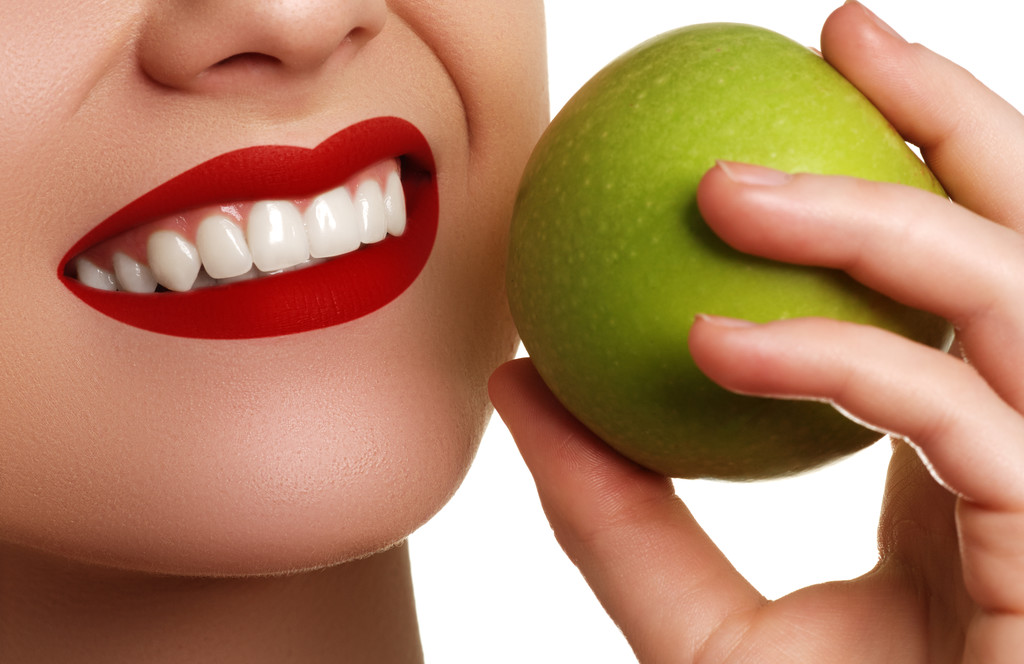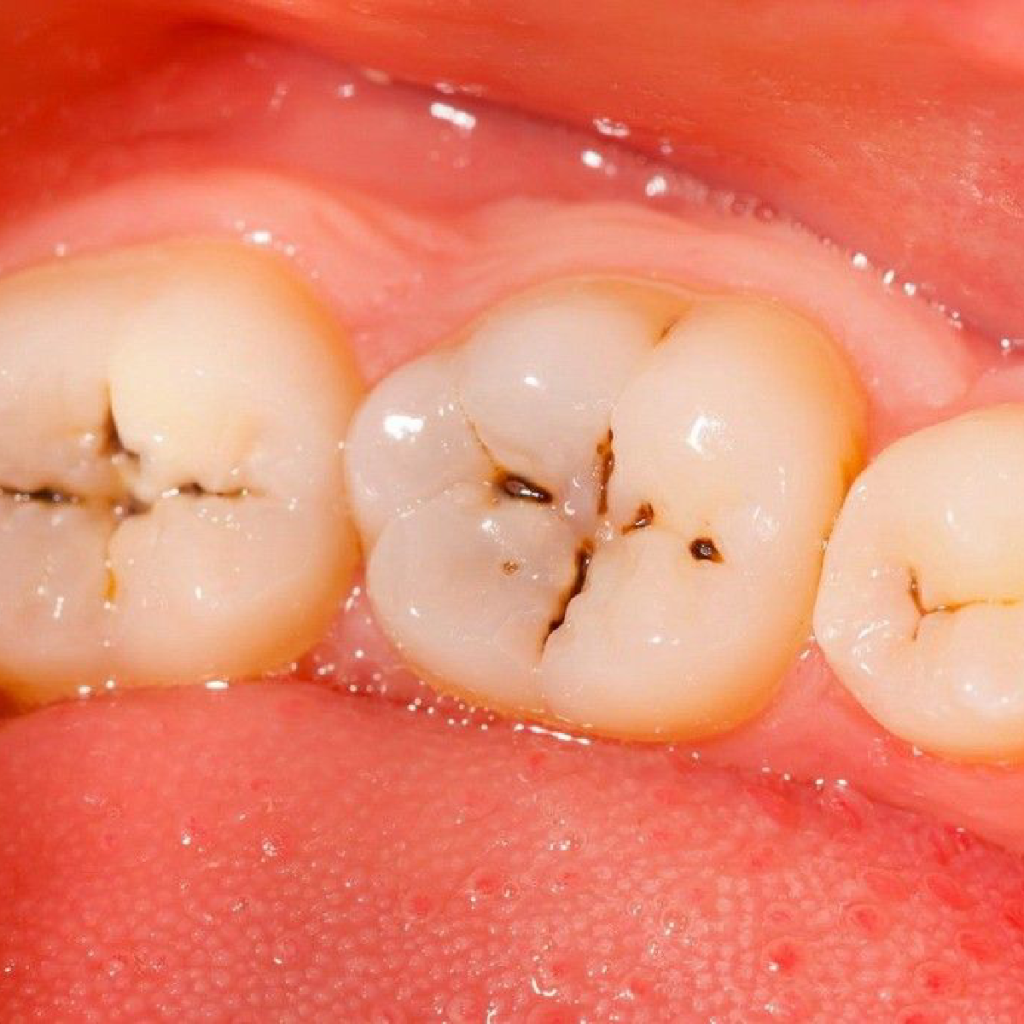Discover the intricate relationship between diet and dental health in this comprehensive guide.
How Diet Impacts Dental Health: A Comprehensive Guide
If you thought that diet only affects your waistline, think again! Your diet plays a crucial role in maintaining good oral health as well. That’s right, what you put in your mouth can have a direct impact on your pearly whites. In this comprehensive guide, we will explore the fascinating connection between diet and dental health, uncover key nutrients that promote a healthy smile, shed light on harmful dietary habits to avoid, and provide you with insightful diet tips for better oral well-being. So buckle up and let’s dive into the delicious world of dental nutrition!

Understanding the Connection Between Diet and Dental Health
Before we delve into the nitty-gritty, let’s take a moment to understand the central role of nutrition in maintaining excellent oral health. You see, our mouth is like a gateway to the rest of our body. Whatever we eat or drink passes through this gateway, leaving an imprint on our teeth and gums along the way. Certain nutrients support the health of our oral tissues, while others can cause damage and lead to dental problems. By making mindful choices about what we consume, we can stack the odds in favor of a healthy smile!
The Role of Nutrition in Oral Health
Imagine your teeth and gums as a tiny ecosystem, bustling with activity. Just like any ecosystem, it requires various nutrients to thrive. Essential minerals like calcium and phosphorus are the building blocks of strong teeth, while vitamins such as vitamin D and vitamin K contribute to their overall health. Additionally, antioxidants like vitamin C and vitamin A protect your teeth and gums against oxidative stress. By nourishing your body with a well-balanced diet, you give your oral ecosystem the ammunition it needs to battle potential invaders and stay in tip-top shape.
Calcium, the most abundant mineral in the body, plays a crucial role in maintaining strong teeth and bones. It helps to form and mineralize tooth enamel, the protective outer layer of the teeth. Without adequate calcium intake, the enamel becomes weak and susceptible to decay. Good sources of calcium include dairy products, leafy green vegetables, and fortified foods like tofu and orange juice.
Phosphorus, another essential mineral, works hand in hand with calcium to build and maintain healthy teeth. It helps to strengthen the tooth enamel and supports the remineralization process, which repairs early stages of tooth decay. Foods rich in phosphorus include fish, poultry, nuts, and beans.
Vitamin D, often referred to as the “sunshine vitamin,” is crucial for the absorption of calcium and phosphorus. It helps the body utilize these minerals effectively, promoting optimal dental health. The primary source of vitamin D is sunlight, but it can also be found in fatty fish, egg yolks, and fortified dairy products.
Vitamin K, known for its role in blood clotting, also contributes to oral health. It helps to promote healthy gums and prevent bleeding. Leafy green vegetables, broccoli, and vegetable oils are excellent sources of vitamin K.
Antioxidants, such as vitamin C and vitamin A, play a vital role in protecting the teeth and gums against oxidative stress. Vitamin C strengthens the blood vessels and connective tissues in the gums, reducing the risk of gum disease. Citrus fruits, strawberries, and bell peppers are rich in vitamin C. Vitamin A, found in foods like sweet potatoes, carrots, and spinach, helps to maintain the mucous membranes in the mouth, keeping them moist and healthy.
How Poor Diet Contributes to Dental Problems
On the other hand, a poor diet can wreak havoc on your oral health. Excessive consumption of sugary and acidic foods creates the perfect breeding ground for oral bacteria. These pesky little critters feast on sugar, releasing acids that erode the enamel and lead to tooth decay. It’s not just the obvious culprits like candy and soda that pose a threat; even seemingly innocent snacks like chips and crackers can contain hidden sugars that fuel bacterial growth. By limiting your intake of sugary and acidic foods, you can significantly reduce the risk of dental problems.
Alcohol and tobacco, the notorious troublemakers, also take a toll on your oral health. Alcohol, especially when consumed in excess, can cause dry mouth, which increases the risk of tooth decay and gum disease. It can also irritate the tissues in the mouth, leading to inflammation and an increased likelihood of oral infections. Tobacco, whether smoked or chewed, stains the teeth, causes bad breath, and significantly raises the risk of developing gum disease and oral cancer. Quitting tobacco and moderating alcohol consumption are essential steps towards maintaining a healthy smile.
In conclusion, it’s safe to say that when it comes to dental health, your diet choices can either make or break your smile. By fueling your body with the right nutrients and avoiding harmful substances, you can support the health of your teeth and gums, ensuring a radiant smile for years to come.
Key Nutrients for Maintaining Dental Health
Now that we understand the power of nutrition, let’s dive into the essential nutrients that deserve a prime spot on your plate.
When it comes to maintaining dental health, there are certain key nutrients that play a crucial role. These nutrients not only contribute to the overall health of your teeth and gums but also help in preventing dental issues such as tooth decay and gum disease.
Importance of Calcium and Vitamin D
If there’s one nutrient duo that deserves a standing ovation in the oral health department, it’s calcium and vitamin D. Calcium is like the cement that holds your teeth together, while vitamin D aids in its absorption.
Calcium is an essential mineral that is primarily responsible for the development and maintenance of strong teeth and bones. It helps in keeping your teeth enamel strong and resistant to decay. Vitamin D, on the other hand, plays a crucial role in the absorption of calcium by the body.
To ensure that you are getting enough calcium and vitamin D, it is important to include foods rich in these nutrients in your diet. Dairy products such as milk, cheese, and yogurt are excellent sources of calcium. Leafy greens like spinach and kale, as well as fortified plant-based milk, are also great options to consider.
So don’t forget to say “cheese” to a healthy smile!
The Benefits of Vitamin C and A for Oral Health
A little vitamin C and A can go a long way in keeping your teeth and gums happy. Vitamin C strengthens blood vessels and connective tissues, promoting healthy gums.
Vitamin C is an antioxidant that helps in the production of collagen, a protein that is essential for the health and strength of your gums. Including foods rich in vitamin C in your diet can help prevent gum diseases such as gingivitis and periodontitis. Citrus fruits like oranges and lemons, strawberries, bell peppers, and broccoli are packed with this vitamin powerhouse.
As for vitamin A, it plays a crucial role in maintaining the health of your teeth and gums by promoting the production of saliva. Saliva helps in washing away food particles and neutralizing acids in the mouth, protecting your pearly whites from harmful bacteria.
To ensure that you are getting enough vitamin A, include foods such as carrots, sweet potatoes, and cantaloupe in your diet. These foods not only provide you with the necessary vitamin A but also offer a host of other benefits for your overall health.
So, next time you plan your meals, make sure to give your teeth the VIP treatment they deserve by including these nutrient-rich foods in your diet!
Harmful Dietary Habits for Dental Health
Now that we’ve covered the superheroes of dental nutrition, it’s time to shine a light on the villains that can sabotage your smile.
The Dangers of Sugar and Acidic Foods
Sugar, the arch-nemesis of dental health, masquerades in various forms, wreaking havoc on our teeth. Candies, sodas, and sugary snacks provide the perfect feast for oral bacteria, leading to tooth decay and cavities. Acidic foods, such as citrus fruits and vinegars, have their own villainous charm. They erode tooth enamel, making your teeth vulnerable to sensitivity and decay. Beware of these sneaky foes and limit your consumption to keep your smile sparkling.
Alcohol and Tobacco: Effects on Oral Health
While a celebratory toast or a smoke break may seem harmless, they can have dire consequences for your oral health. Alcohol causes dry mouth, reducing saliva flow, which is essential for washing away bacteria and protecting your teeth. As for tobacco, it not only stains your teeth but also increases the risk of gum disease and oral cancer. So if you want to keep your smile in top condition, it’s best to steer clear of these dental villains!
Diet Tips for Better Dental Health
Now that you know the role of nutrients and the foods to avoid, it’s time to uncover some diet tips for a smile that can light up a room!
Foods to Include for Strong Teeth and Gums
Load up on foods that nourish your teeth and gums. Dairy products like milk and cheese provide a calcium and protein punch. Green leafy vegetables, nuts, and seeds are also packed with vital minerals and vitamins. Don’t forget to shower your plate with colorful fruits and vegetables, as they contain antioxidants that protect your oral health. And last but not least, don’t underestimate the power of water! It rinses away food particles, promotes saliva production, and keeps your mouth hydrated. Cheers to a mouthful of goodness!
Foods to Avoid for Optimal Dental Health
While we can occasionally indulge in our favorite treats, it’s crucial to limit sugary and acidic foods to protect your precious smile. Say no to sugary beverages and snacks, and opt for healthier alternatives. When it comes to acidic foods, moderation is key. Be mindful of how frequently you consume them to minimize the chances of enamel erosion. By making sensible choices, you can savor the occasional indulgence while still maintaining superb oral health!
The Impact of Diet on Specific Dental Conditions
Lastly, let’s explore the connection between diet and specific dental conditions.

Diet and Gum Disease: What’s the Connection?
Gum disease is no joke, and what you eat can significantly impact its development. Consuming foods high in sugar and low in nutrients weakens your immune system, making it easier for gum disease to take root. On the other hand, a diet rich in fruits, vegetables, and whole grains boosts your immunity, reducing the risk of gum disease. By maintaining a balanced diet, you’re not just feeding your body but also nourishing your gums!
How Diet Influences Tooth Decay and Cavities
Tooth decay and cavities are often the result of an unhealthy diet. Frequent consumption of sugary and acidic foods provides an open invitation to tooth-damaging bacteria. On the flip side, a diet that includes teeth-friendly nutrients and low in added sugars sets the stage for a cavity-free smile. So let your plate be a fortress against dental decay!
By now, you’re armed with the knowledge you need to make informed dietary choices for the sake of your dental health. Remember, a playful and engaging tone is key to keep the reader entertained and interested. So go ahead, savor the variety of flavors that promote a radiant smile, and bid farewell to the dietary villains that threaten your oral well-being. Here’s to a mouthwatering journey towards optimal dental health!








Your article helped me a lot, is there any more related content? Thanks!
Your point of view caught my eye and was very interesting. Thanks. I have a question for you.